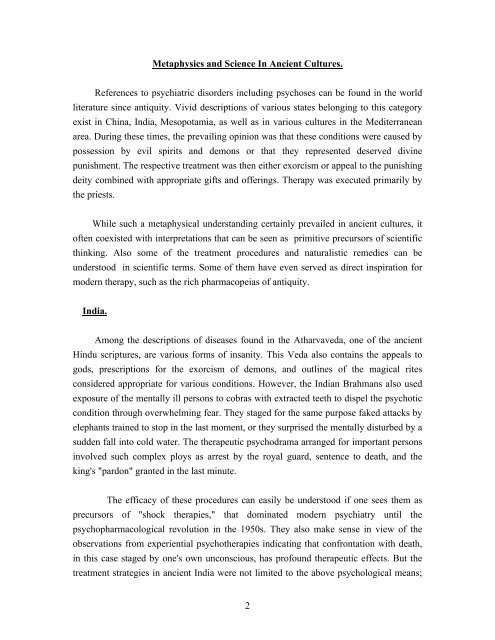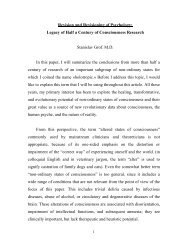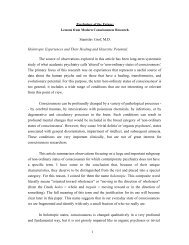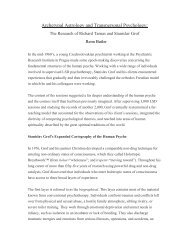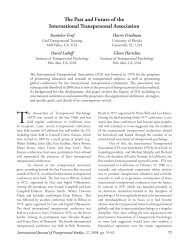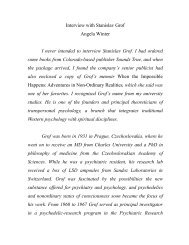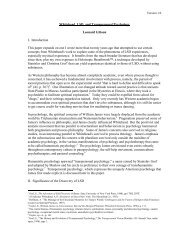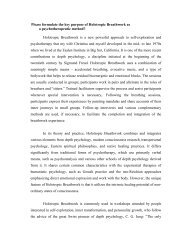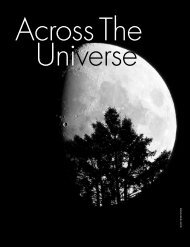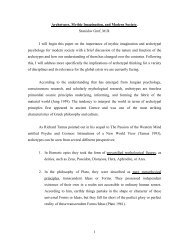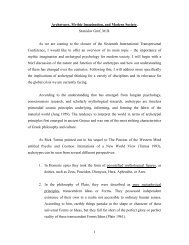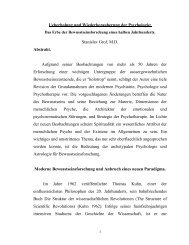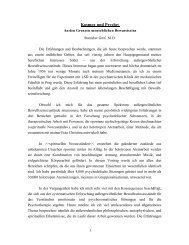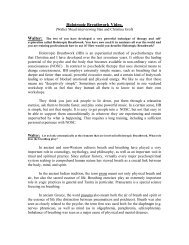1 PSYCHOSIS AND HUMAN SOCIETY: A Historical ... - Stanislav Grof
1 PSYCHOSIS AND HUMAN SOCIETY: A Historical ... - Stanislav Grof
1 PSYCHOSIS AND HUMAN SOCIETY: A Historical ... - Stanislav Grof
Create successful ePaper yourself
Turn your PDF publications into a flip-book with our unique Google optimized e-Paper software.
Metaphysics and Science In Ancient Cultures.<br />
References to psychiatric disorders including psychoses can be found in the world<br />
literature since antiquity. Vivid descriptions of various states belonging to this category<br />
exist in China, India, Mesopotamia, as well as in various cultures in the Mediterranean<br />
area. During these times, the prevailing opinion was that these conditions were caused by<br />
possession by evil spirits and demons or that they represented deserved divine<br />
punishment. The respective treatment was then either exorcism or appeal to the punishing<br />
deity combined with appropriate gifts and offerings. Therapy was executed primarily by<br />
the priests.<br />
While such a metaphysical understanding certainly prevailed in ancient cultures, it<br />
often coexisted with interpretations that can be seen as primitive precursors of scientific<br />
thinking. Also some of the treatment procedures and naturalistic remedies can be<br />
understood in scientific terms. Some of them have even served as direct inspiration for<br />
modern therapy, such as the rich pharmacopeias of antiquity.<br />
India.<br />
Among the descriptions of diseases found in the Atharvaveda, one of the ancient<br />
Hindu scriptures, are various forms of insanity. This Veda also contains the appeals to<br />
gods, prescriptions for the exorcism of demons, and outlines of the magical rites<br />
considered appropriate for various conditions. However, the Indian Brahmans also used<br />
exposure of the mentally ill persons to cobras with extracted teeth to dispel the psychotic<br />
condition through overwhelming fear. They staged for the same purpose faked attacks by<br />
elephants trained to stop in the last moment, or they surprised the mentally disturbed by a<br />
sudden fall into cold water. The therapeutic psychodrama arranged for important persons<br />
involved such complex ploys as arrest by the royal guard, sentence to death, and the<br />
king's "pardon" granted in the last minute.<br />
The efficacy of these procedures can easily be understood if one sees them as<br />
precursors of "shock therapies," that dominated modern psychiatry until the<br />
psychopharmacological revolution in the 1950s. They also make sense in view of the<br />
observations from experiential psychotherapies indicating that confrontation with death,<br />
in this case staged by one's own unconscious, has profound therapeutic effects. But the<br />
treatment strategies in ancient India were not limited to the above psychological means;<br />
2


